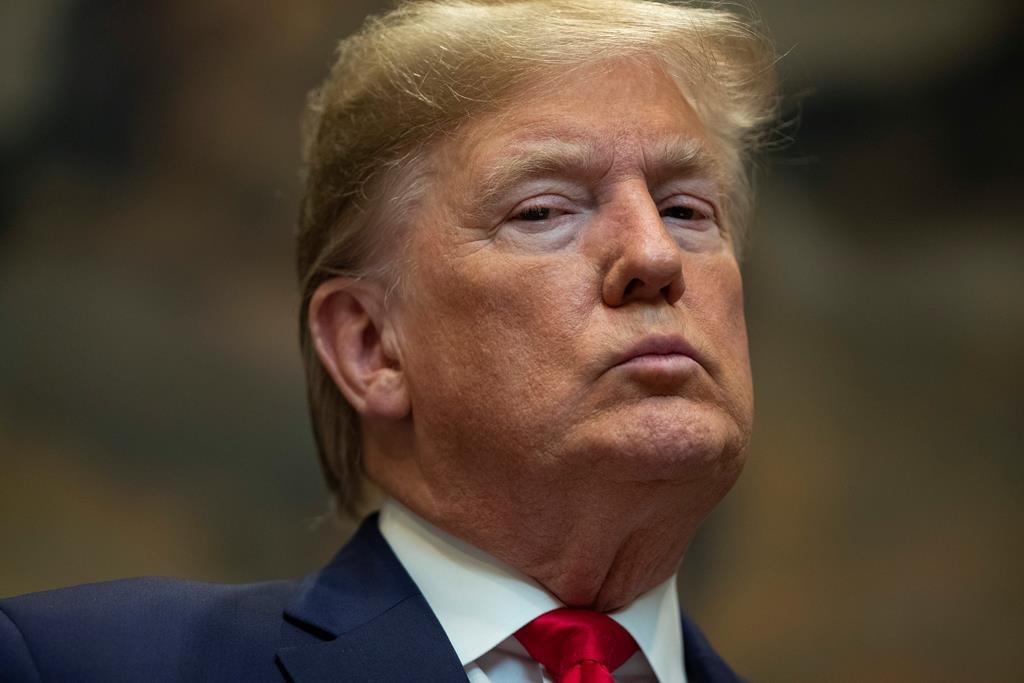Donald Trump endangered the lives of all members of Congress when he aimed a mob of supporters “like a loaded cannon” at the U.S. Capitol, House Democrats said Tuesday in making their most detailed case yet for why the former president should be convicted and permanently barred from office. Trump denied the allegations through his lawyers and called the trial unconstitutional.
The dueling filings offer the first public glimpse of the arguments that will be presented to the Senate beginning next week. The impeachment trial represents a remarkable reckoning with the violence in the Capitol last month, which the senators witnessed firsthand, and with Trump’s presidency overall. Held in the very chamber where the insurrectionists stood on Jan. 6, it will pit Democratic demands for a final measure of accountability against the desire of many Republicans to turn the page and move on.
The impeachment trial, Trump’s second, begins in earnest on Feb. 9.
The Democratic legal brief forcefully linked Trump’s baseless efforts to overturn the results of the presidential election to the deadly riot at the Capitol, saying he bears “unmistakable” blame for actions that threatened the underpinnings of American democracy. It argued that he must be found guilty on a charge of inciting the siege. And it used evocative language to conjure the day’s chaos, when “terrified members were trapped in the chamber” and called loved ones “for fear they would not survive.”
“His conduct endangered the life of every single member of Congress, jeopardized the peaceful transition of power and line of succession, and compromised our national security,” the Democratic managers of the impeachment case wrote. “This is precisely the sort of constitutionaloffence that warrants disqualification from federal office.”
The Democrats’ filing made clear their plan to associate Trump’s words with the resulting violence, tracing his efforts to subvert democracy to when he first said last summer that he would not accept the election results and then through the November contest and his many failed attempts to challenge the results in court. When those efforts failed, the Democrats wrote, “he turned to improper and abusive means of staying in power,” specifically by launching a pressure campaign aimed at state election officials, the Justice Department and Congress.
“The only honourable path at that point was for President Trump to accept the results and concede his electoral defeat. Instead, he summoned a mob to Washington, exhorted them into a frenzy, and aimed them like a loaded cannon down Pennsylvania Avenue,” the Democrats wrote in an 80-page document.
The Democrats cited his unsuccessful efforts to sway Georgia Secretary of State Brad Raffensperger and former Attorney General William Barr. Trump then became “fixated” on Jan. 6, the managers wrote. They note that many of his supporters, including the Proud Boys _ who Trump told to “stand back and stand by” at a September debate _ were already primed for violence.
“Given all that, the crowd which assembled on January 6 unsurprisingly included many who were armed, angry, and dangerous_and poised on a hair trigger for President Trump to confirm that they indeed had to “fight” to save America from an imagined conspiracy,” the Democrats wrote.
The House brief is more than 5 times as long as the 14-page Trump filing and heavy on footnotes and citations, aiming to construct what Democrats hope will be a detailed roadmap for conviction. Trump’s legal team, by contrast, was more sparing in a filing that avoided dwelling on the drama and violence of the day.
Trump’s lawyers, David Schoen and Bruce Castor, denied that he had incited the riot by disputing the election results or by exhorting his followers to “fight like hell.” They said he was permitted by the First Amendment to challenge his loss to Democrat Joe Biden as “suspect” and that, in any event, the trial itself was unconstitutional now that Trump has left the White House.
Trump’s lawyers disputed the Democrats’ characterization of Trump’s remarks and his role in the riot, denying that he had ever endangered national security. When he told his followers to fight like hell, they said, he was talking about “election security in general.”
Trump, they said, was not attempting to interfere with the counting of electoral votes, only encouraging members of Congress to engage in the customary process of challenging vote submissions “under a process written into Congressional rules,” as had been done in years past.
“The actions by the House make clear that in their opinion the 45th President does not enjoy the protections of liberty upon which this great Nation was founded, where free speech, and indeed, free political speech form the backbone of all American liberties,” the defence lawyers wrote.
Trump’s legal team also laid out a challenge to the constitutionality of the trial now that Trump has left office. Though that claim may not be resolved any time soon in the courts, it may nonetheless resonate politically.
Republicans have signalled that acquittal is likely, with many saying they think Congress should move on and questioning the constitutionality of an impeachment trial _ Trump’s second _ now that he has left office. In a test vote in the Senate last week, 45 Republicans, including Senate Republican leader Mitch McConnell, voted in favour of an effort to dismiss the trial over those constitutional concerns.
Still, the Constitution specifies that disqualification from office can be a punishment for an impeachment conviction, and Democrats made clear that they see that as a worthwhile objective in this case.
“This is not a case where elections alone are a sufficient safeguard against future abuse; it is the electoral process itself that President Trump attacked and that must be protected from him and anyone else who would seek to mimic his behaviour,” the Democrats wrote.
Though no president has been tried after departing the White House, Democrats say there is precedent, pointing to an 1876 impeachment of a secretary of war who resigned his office in a last-ditch attempt to avoid an impeachment trial. The Senate held it anyway.
The Democrats wrote that the framers of the Constitution would not have wanted to leave the country defenceless against “a president’s treachery in his final days, allowing him to misuse power, violate his Oath, and incite insurrection against Congress and our electoral institutions” simply because he is leaving office. Setting that precedent now would “horrify the Framers,” the brief said.
“There is no `January Exception’ to impeachment or any other provision of the Constitution,” the Democrats wrote. “A president must answer comprehensively for his conduct in office from his first day in office through his last.”
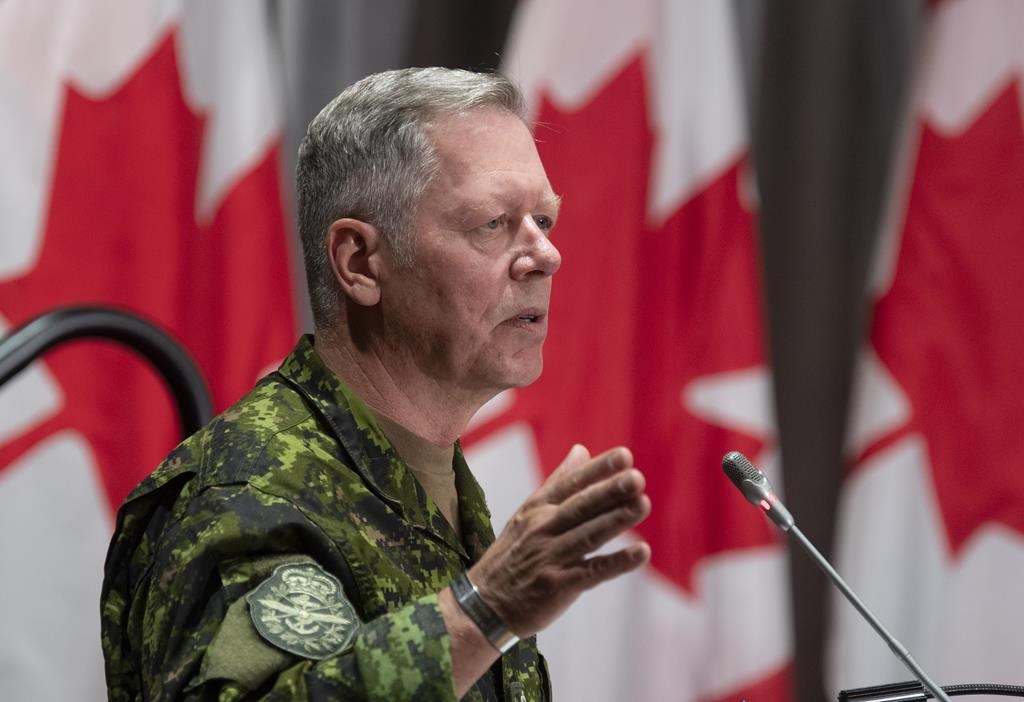
Canada’s top defence officials say they are troubled by allegations that former defence chief Jonathan Vance engaged in inappropriate behaviour with female subordinates.
Global News reported on Tuesday that Vance allegedly had an ongoing relationship with a woman he significantly outranked.
Vance is also alleged to have made a sexual comment to a second, much younger soldier in 2012, before he was appointed chief of the defence staff.
Vance could not be reached for comment on Tuesday and the allegations against him could not be independently verified.
In a joint statement, Vance’s successor Admiral Art McDonald and Defence Department deputy minister Jody Thomas say they take all such allegations seriously, without suggesting they had substantiated these.
They say misconduct by anyone at any rank in the Canadian Forces harms the military’s ability to operate and protect the country.
“We will be communicating more in the coming days and have no further comment at this time,” their statement said.
Vance acknowledged having been in a relationship with the first woman nearly 20 years ago, according to Global, but that it had evolved over the years and was not sexual.
The former defence chief also said he had no recollection of making a sexual comment to the other junior member, adding if he did make the comment it would have been intended as a joke and that he was prepared to apologize.
The allegations against Vance come less than a month after he turned over command of the Canadian Armed Forces to McDonald.
Vance took over as defence chief in July 2015, at which point the Canadian Armed Forces was struggling with allegations of having turned a blind eye toward sexual misconduct in the ranks.
Vance’s first order as Canada’s top military commander was to launch an all-out effort against such inappropriate behaviour, which he continued to push during his five-plus years at the helm.
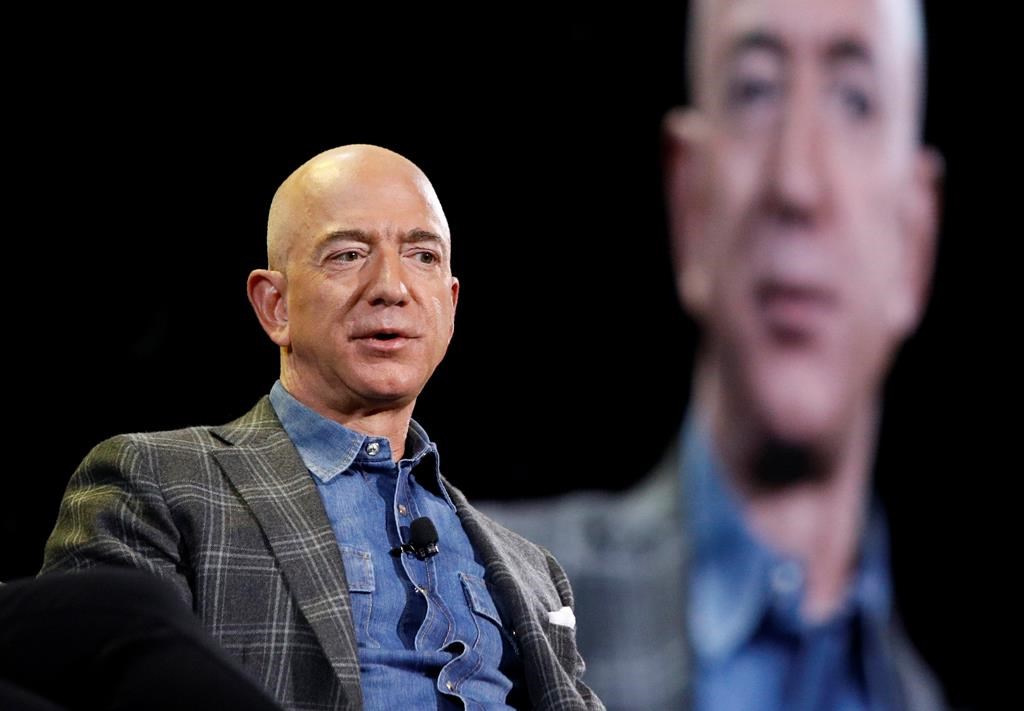
Jeff Bezos, who founded Amazon and turned into an online shopping behemoth, is stepping down as the company’s CEO, a role he’s had for nearly 30 years.
He’ll be replaced in the fall by Andy Jassy, who runs Amazon’s cloud-computing business. Bezos, 57, will then become the company’s executive chair.
In a blog post to employees, Bezos said he plans to focus on new products and early initiatives being developed at Amazon. And he said he’ll have more time for side projects: his space exploration company Blue Origin; the newspaper he owns, The Washington Post; and his charities.
Launched in 1995, Amazon was a pioneer of fast and free shipping that won over millions of shoppers who used the site to buy diapers, TVs and just about anything. Under Bezos, Amazon also launched the first e-reader that gained mass acceptance, and its Echo listening device made voice assistants a more common sight in many living rooms.
As a child, Bezos was intrigued by computers and interested in building things, such as alarms he rigged in his parents’ home. He got a degree in electrical engineering and computer science at Princeton University, and then worked at several Wall Street companies.
He quit his job at D.E. Shaw to start an online retail business _ though at first he wasn’t sure what to sell. Bezos quickly determined that an online bookstore would resonate with consumers. He and his wife, MacKenzie, whom he met at D.E. Shaw and married in 1993, set out on a road trip to Seattle _ a city chosen for its abundance of tech talent and proximity to a large book distributor in Roseburg, Oregon.
While MacKenzie drove, Bezos wrote up the business plan for what would become Amazon.com. Bezos convinced his parents and some friends to invest in the idea, and Amazon began operating out of the Bezos’ Seattle garage on July 16, 1995.
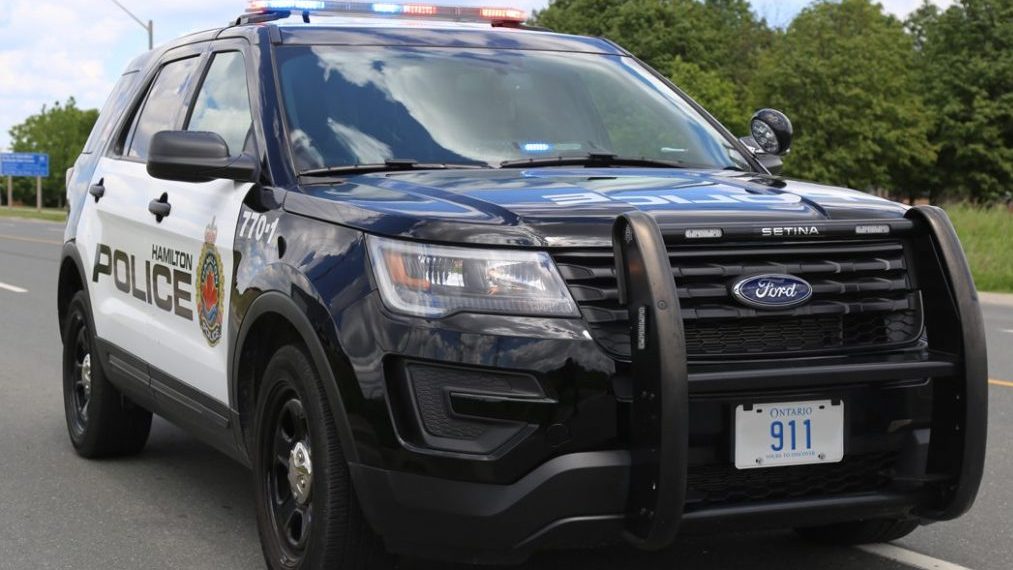
A man is facing an explosives-related charge following a confrontation with police in a mall parking lot early Monday morning, Hamilton police say.
Police said they were called at around 5 a.m. for a report of a person in crisis in the Lime Ridge Mall parking lot.
When officers arrived, police allege they found a man alone in a car. The area was sealed off so officers could speak to the man, police said.
“Moments before 8 a.m., without warning the male attempted to leave the parking lot striking police vehicles and barricades,” a police news release said. “His vehicle was contained by police as it entered Upper Wentworth Street.”
The man was taken into custody on Upper Wentworth Street without incident and was sent to the hospital for treatment, police said. The man’s condition has not been released.
No police officers were injured during the incident, police said.
After the man was taken out of the car, police said officers searching the vehicle found “a suspicious device” inside.
“The Emergency Response Unit attended the scene, investigated the device and confirmed it was a device built with the intent to explode and rendered it inoperable,” police said.
Later in the afternoon, police said investigators used a search warrant to enter a residence in the area of Concession Street and Upper Sherman Avenue where they say they found additional evidence related to the incident outside the mall.
A 44-year-old Hamilton man has been charged with being in possession of an explosive device, police said. He will appear in court on Tuesday.
https://toronto.citynews.ca/2021/02/01/ontario-confirms-first-case-of-south-african-covid-19-variant/
Ontario has reported its first case of a COVID-19 variant that emerged in South Africa, with the province’s top doctor saying more such infections are expected to be found in the future.
Dr. David Williams said Monday that the South African variant was found in Peel Region in a person who had neither travelled nor had any known contact with anyone who travelled.
“This is our first South African one. I would doubt if it’s going to be our last,” he said.
Williams said data from South Africa shows the variant has a higher viral load, meaning it may be more infectious.
A small number of cases have already been confirmed in other Canadian provinces, including Alberta and British Columbia.
The South African variant one of three “variants of concern” that Public Health Ontario is ramping up screening for in the province.
Officials have already confirmed dozens of cases of the U.K. variant in the province since it was first detected in December.
Health and science experts advising the province have said the spread of that variant poses a significant threat to Ontario’s control of the pandemic.
Earlier on Monday, York Region, north of Toronto, confirmed it had recorded 39 total cases of the U.K. variant of COVID-19.
While the majority are now resolved, the municipality said there are 24 households associated with the cases, and 10 were spread through “local transmission.”
“We are very concerned about the U.K. variant in circulation within York Region; it is important to curb this COVID-19 variant spread as quickly as we can,” communications director Patrick Casey said in a statement.
Toronto Public Health reported Monday that it had linked two U.K. variant cases to an outbreak at a meat processing facility that has infected 78 people.
“At this time, there is no indication that any cases identified in the outbreak had recently travelled or had contact with a person who travelled recently,” the health unit said in a statement.
It said Belmont Meats voluntarily closed on Jan. 28 amid the public health investigation.
As of Sunday, Public Health Ontario had confirmed 69 total cases of the U.K. variant in the province, though regional officials have said they believe the number is likely much higher.
The new variant cases reported Monday case as Ontario began making all international travellers flying into Toronto take a COVID-19 tests on arrival.
The program is similar to a federal plan set to be implemented in the near future. Premier Doug Ford said Ontario would conduct its own traveller testing until Ottawa’s program kicked in.
The testing order that took effect at the Toronto airport Monday will eventually apply to the province’s land border crossings to the United States.
Evan Rachkovsky, a spokesman for the Canadian Snowbird Association that represents about 110,000 people, said his group supports mandatory COVID-19 tests but is concerned about the fine print in the federal government’s stricter rules.
“We are absolutely supportive of the provinces and the federal government implementing testing at land borders and at airports,” Rachkovsky said in a phone interview.
He said many of the more than 30,000 group members currently abroad are anxious for more details of the federal plan — in particular, the group is opposed to the federal program’s rule that travellers must pay for a stay at an approved hotel while waiting on COVID-19 test results.
Prime Minister Justin Trudeau said Friday that the on-arrival testing and hotel stay could cost each traveller more than $2,000.
NDP Opposition Leader Andrea Horwath said point-of-entry testing is just part of the picture and accused Ford of “diverting people’s attention to the airport” rather than taking concrete steps to control the pandemic inside Ontario.
“I think anything that prevents COVID-19 from entering Ontario needs to be considered but let’s face it, Doug Ford needs to pay attention to stopping the spread within Ontario,” Horwath said.
Ontario reported 1,969 new cases of COVID-19 on Monday and 36 more deaths linked to the virus.
A spokeswoman for Ontario’s Ministry of Health said that as Toronto migrates to the provincial data system, additional records were reported for the local public health unit, resulting in an overestimate of Monday’s daily counts.
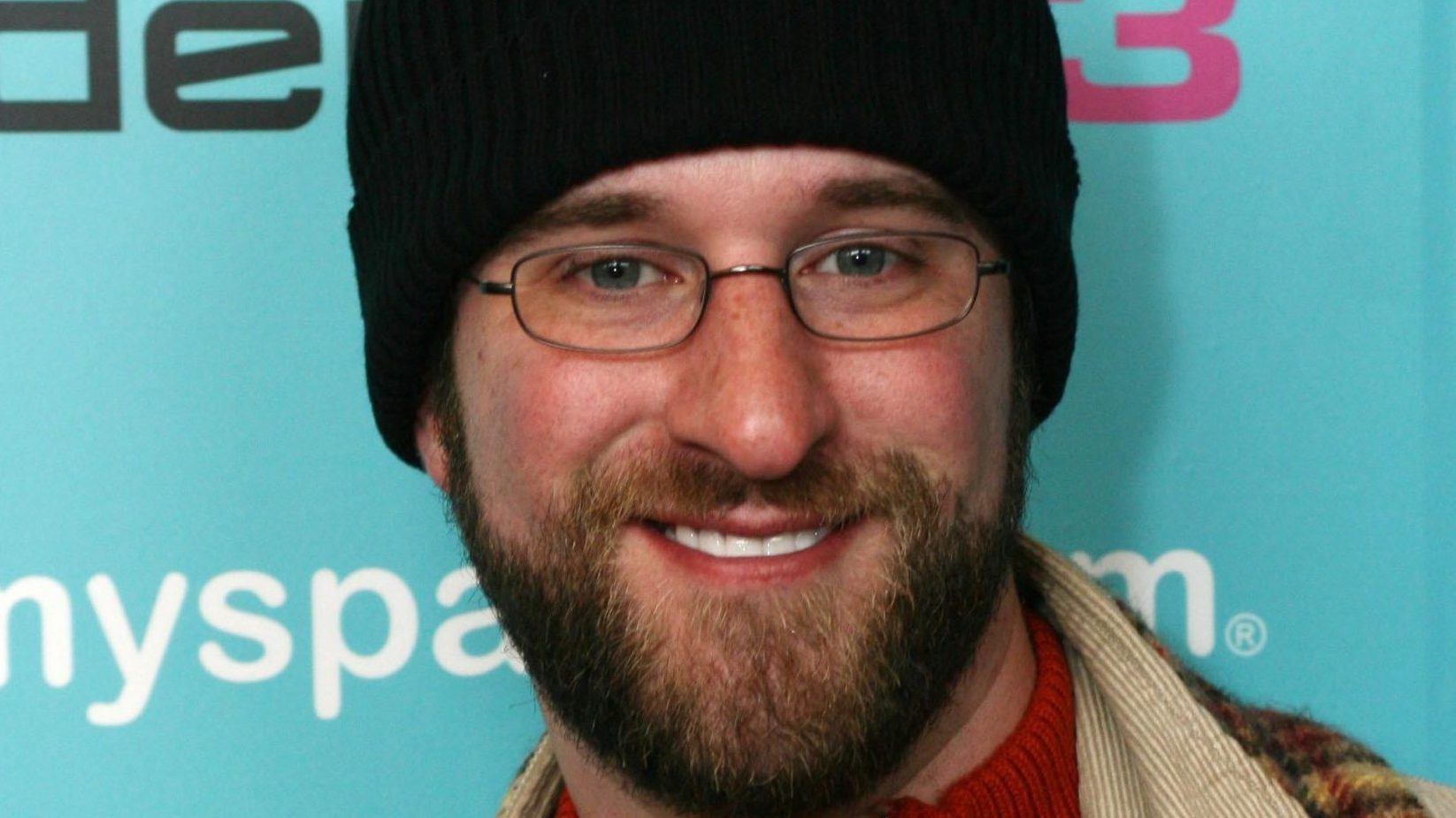
“Saved by the Bell” star Dustin Diamond died Monday after a three-week fight with cancer, according to his representative. He was 44.
“Dustin did not suffer. He did not have to lie submerged in pain. For that, we are grateful,” the actor’s spokesman, Roger Paul, said in a statement.
Diamond, best known for playing the quirky, nerdy Screech on the hit ’90s sitcom, was hospitalized last month in Florida and his team disclosed later that he had cancer. Diamond had carcinoma.
Former co-star Mario Lopez took to Twitter to say farewell: “Dustin, you will be missed, my man. The fragility of this life is something never to be taken for granted.” Another co-star, Mark-Paul Gosselaar, called Diamond “a true comedic genius,” adding “I will miss those raw, brilliant sparks that only he was able to produce.”
“Saved by the Bell” aired from 1989 to 1993, and its related shows included “Saved by the Bell: The College Years,”
“Good Morning, Miss Bliss” and “Saved by the Bell: The New Class,” which Diamond starred in. A sequel was launched on Peacock last fall featuring many from the original cast, including Gosselaar, Lopez, Elizabeth Berkley and Tiffani Thiessen. Diamond was not included.
“God speed, Dustin,” Thiessen wrote on Instagram. Josh Gad on Twitter said Diamond was “a defining part of our collective pop cultural touchstones.”
He starred in a handful of reality television series including the 5th season of “Celebrity Fit Club,” “The Weakest Link” and “Celebrity Boxing 2.” In December 2013, Diamond appeared on an episode of OWN’s “Where Are They Now?” and became a house member in the 12th season of “Celebrity Big Brother.”
Diamond was sued several times for delinquent taxes and in foreclosure proceedings for missing mortgage payments. He has appeared on reality TV shows, made a sex tape and produced a tell-all documentary on Lifetime TV called “The Unauthorized Saved by the Bell Story.” In 2015, he was sentenced to serve four months in jail for his part in a Wisconsin barroom stabbing.
“Dustin was a humorous and high-spirited individual whose greatest passion was to make others laugh. He was able to sense and feel other peoples’ emotions to such a length that he was able to feel them too — a strength and a flaw, all in one,” wrote Paul.
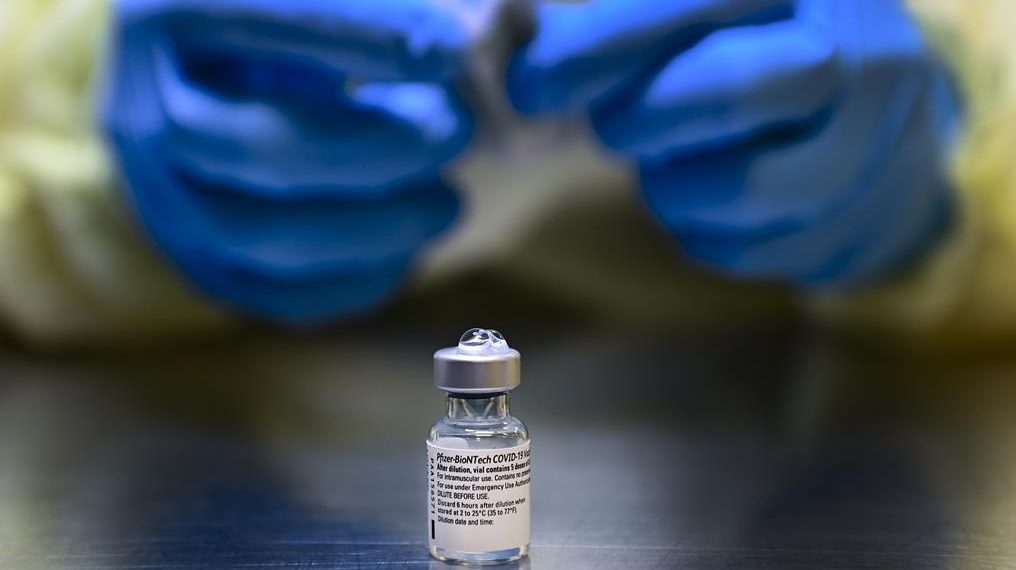
Prime Minister Justin Trudeau is expected to announce Tuesday the makings of an agreement to produce COVID-19 vaccines within Canada.
Industry Minister Francois-Phillipe Champagne tells The Canadian Press the government is moving quickly to start making COVID-19 vaccines itself, instead of being entirely reliant on foreign production for the most sought-after product in the world.
The deal could help Trudeau tamp down the political headache caused by Canada’s skeletal vaccine production capacity.
Canada’s inability to produce any COVID-19 vaccines at home has left the country at the mercy of foreign governments who could at any time slam the doors shut to vaccine exports until their own people are vaccinated.
That risk became ever more real this week as Europe’s new export controls on vaccines takes hold, putting at risk Canada’s entire supply of COVID-19 vaccines.
Champagne’s department and the National Research Council have been in talks with all the front-running vaccine makers in the world for months, trying to lure at least one of them to make some of their vaccines at the new facility, which is on track to be finished this summer.
None of those talks have borne any fruit until now.
“I have received positive feedback from some leading vaccine manufacturers in these discussions, and so we are moving full steam ahead to build Canada’s domestic production of vaccines,” said Champagne, in a statement to The Canadian Press.
The National Research Council was even rebuffed in offers to help all leading vaccine makers do research on scaling up their production processes to make the precious doses as fast as possible.
None of those offers was accepted.
Talks to do that with Novavax fell apart at the 11th hour last fall, right before an initial agreement for Canada to buy 52 million doses of Novavax’s vaccine was announced.
An email chain, released to the House of Commons health committee in the latest batch of documents on Canada’s pandemic response, shows a reference to the agreement was deleted from the memorandum of understanding with Novavax the day before the deal was made public.
The National Research Council was also going to make doses of CanSino Biologic’s vaccine, in a deal that included a $44-million upgrade of the NRC’s Royalmount facility in Montreal.
But Canada’s partnership with CanSino fell apart almost as quickly as it began, when China refused to allow any doses of the vaccine to be exported to Canada for use in a clinical trial here.
The vaccine is made using technology that was developed at the NRC in the first place and then licensed to CanSino for use in an Ebola vaccine.
After that deal fell apart the Trudeau Liberals added $123-million for the NRC, so it didn’t just expand the Royalmount facility, but built an entirely new production site beside it, capable of pumping out two million doses of vaccine a month.
It won’t be able to make the messenger RNA vaccines, like those from Pfizer-BioNTech and Moderna, but can make most other types of vaccines, including those made by the other three vaccines currently being reviewed by Health Canada — AstraZeneca, Johnson and Johnson and Novavax.
Canada invested another $173 million to Quebec’s Medicago, to push research on its vaccine and build a new production plant in Quebec. If Medicago’s vaccine turns out to be safe and effective for COVID-19, it will initially be made in North Carolina.
Canada’s only vaccine production exists with Sanofi in Toronto and GlaxoSmithKline in Quebec. Sanofi pumps out millions of doses of vaccine in Toronto for diseases like whooping cough, polio and tetanus, while GSK’s Quebec plant is where Canada gets most of its annual flu vaccine.
The two are collaborating on a COVID-19 vaccine, which was delayed until at least the fall after initial results were not as good as hoped. But their plan, like that of Pfizer, Moderna, Novavax and Johnson and Johnson, does not involve making any of that vaccine in Canada.
Canada used to have a strong domestic vaccine industry. Federal records show in 1973, Canada relied on imports for only about one-fifth of its domestic pharmaceutical requirements including both vaccines and therapeutic drugs.
But the industry began to dry up in the 1980s, with multiple firms closing their Canadian operations including AstraZeneca, Bristol Myers and Johnson and Johnson.
Today, Canada relies on imports for at least 85 per cent of the vaccines and other pharmaceuticals it uses.
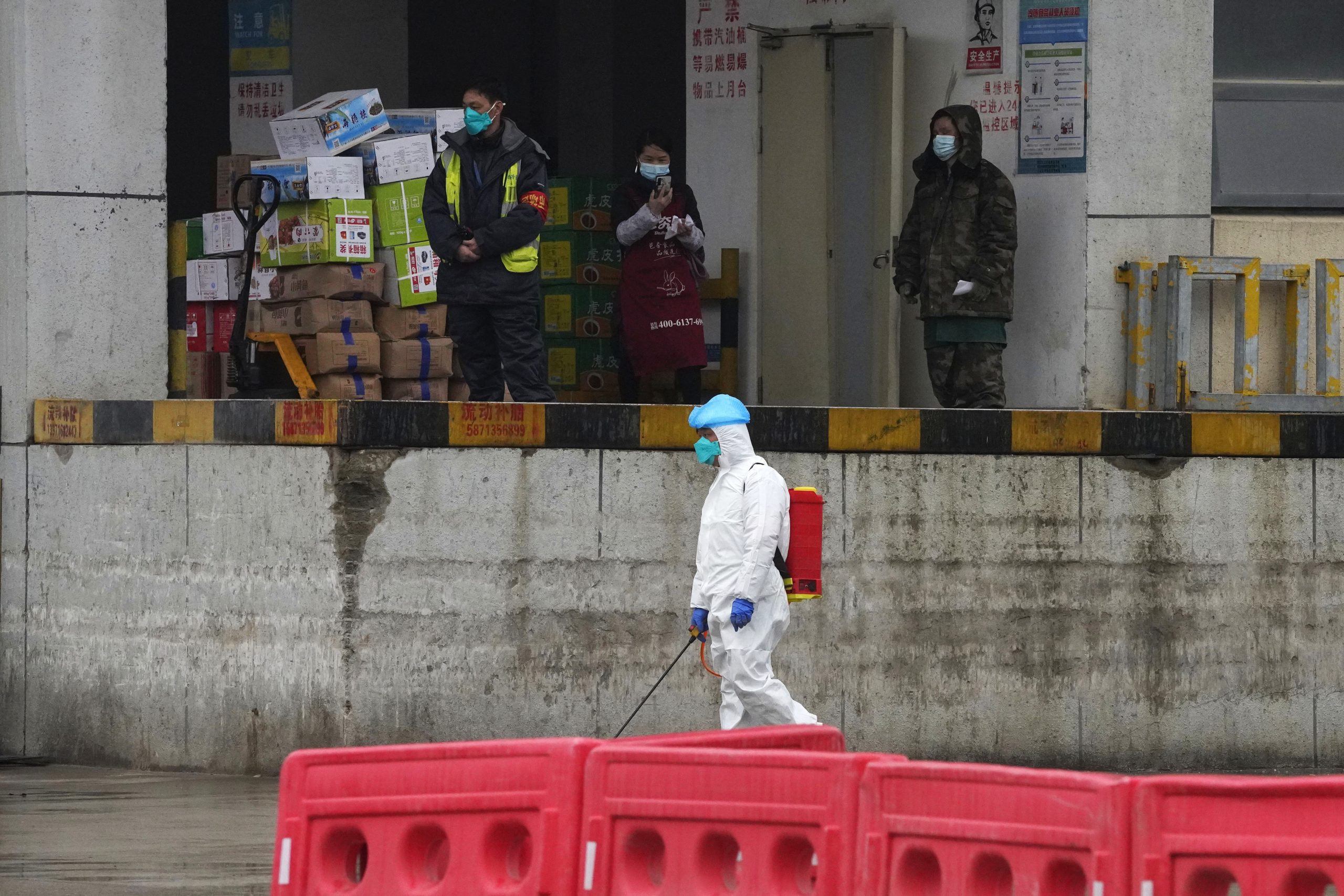
A World Health Organization team looking into the origins of the coronavirus pandemic on Sunday visited a market known to be the food distribution centre for the Chinese city of Wuhan during the 76-day lockdown last year.
The team members were seen walking through sections of the Baishazhou market — one of the largest wet markets in Wuhan — surrounded by a large entourage of Chinese officials and representatives.
The members, with expertise in veterinarian, virology, food safety and epidemiology, have so far visited two hospitals at the centre of the early outbreak — Wuhan Jinyintan Hospital and the Hubei Integrated Chinese and Western Medicine Hospital.
On Saturday, they also visited a museum exhibition dedicated to the early history of COVID-19.
The Geneva-based WHO said on Twitter last Thursday that the team plans to visit hospitals and markets like the Huanan Seafood Market, which was linked to many of the first cases. They also listed the Wuhan Institute of Virology and laboratories at facilities including the Wuhan Center for Disease Control.
The mission has become politically charged, as China seeks to avoid blame for alleged missteps in its early response to the outbreak.
A single visit by scientists is unlikely to confirm the virus’s origins. Pinning down an outbreak’s animal reservoir is typically an exhaustive endeavour that takes years of research including taking animal samples, genetic analysis and epidemiological studies.
One possibility is that a wildlife poacher might have passed the virus to traders who carried it to Wuhan. The Chinese government has promoted theories, with little evidence, that the outbreak might have started with imports of frozen seafood tainted with the virus, a notion roundly rejected by international scientists and agencies.
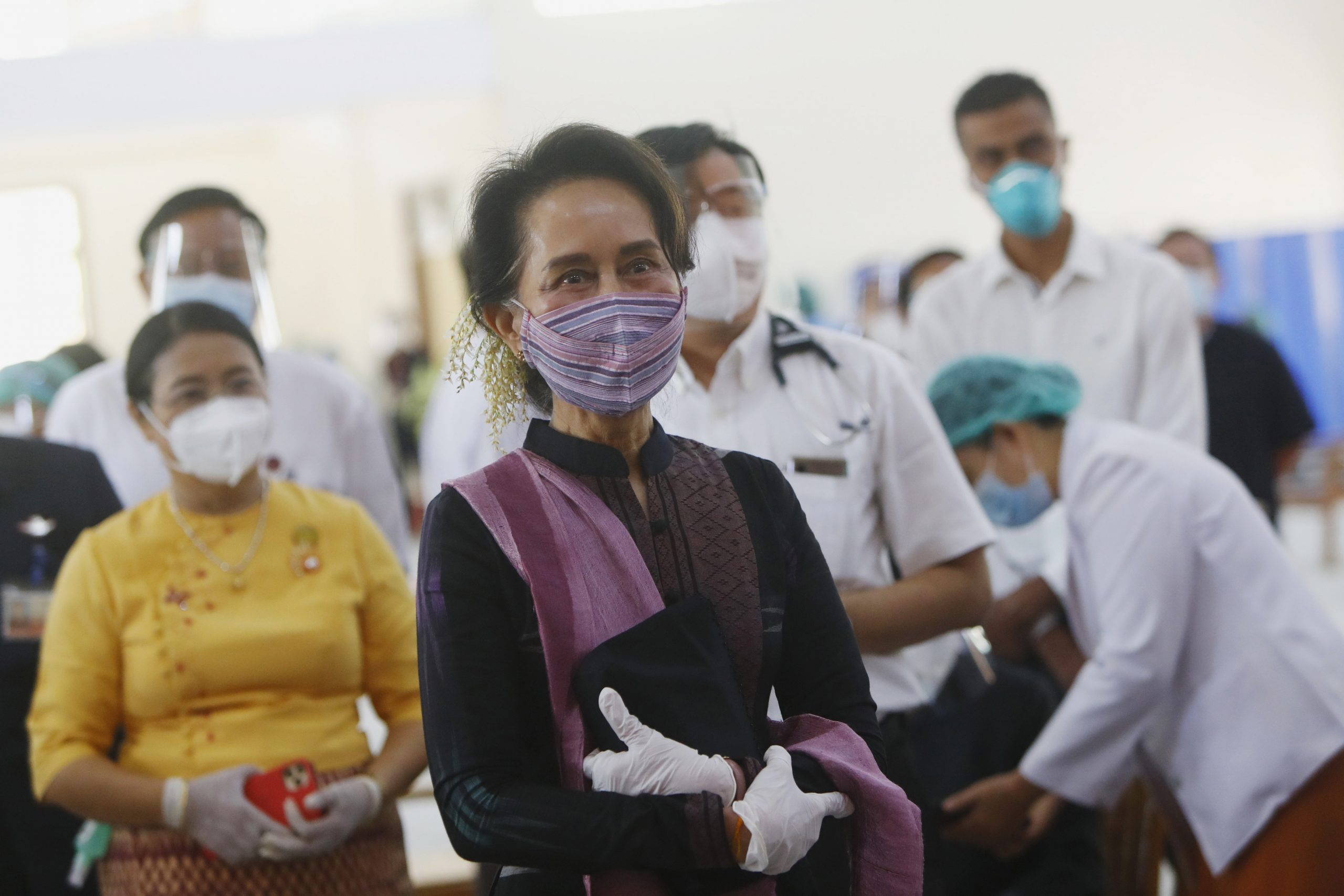
NAYPYITAW, Myanmar — Myanmar military television said Monday that the military was taking control of the country for one year, while reports said many of the country’s senior politicians including Aung San Suu Kyi had been detained.
An presenter on military-owned Myawaddy TV made the announcement and cited a section of the military-drafted constitution that allows the military to take control in times of national emergency. He said the reason for takeover was in part due to the government’s failure to act on the military’s claims of voter fraud in last November’s election and its failure to postpone the election because of the coronavirus crisis.
The announcement follows days of concern about the threat of a military coup — and military denials — and came on the morning the country’s new Parliament session was to begin.
The detention of the politicians and cuts in communication services on Monday were the first signals that plans to seize power were in motion. Phone and internet access to Naypyitaw was lost and Suu Kyi’s National League for Democracy party could not be reached.
The Irrawaddy, an established online news service, reported that Suu Kyi, who as state counsellor is the nation’s top leader, and the country’s president, Win Myint, were both detained in the pre-dawn hours. The news service cited Myo Nyunt, a spokesman for the NLD.
Its report said that the party’s Central Executive Committee members, lawmakers and regional Cabinet members had also been taken into custody.
The U.S., Australia and others issued statements expressing concern reports and urging Myanmar’s military to respect the rule of law.
“The United States is alarmed by reports that the Burmese military has taken steps to undermine the country’s democratic transition, including the arrest of State Counselor Aung San Suu Kyi and other civilian officials in Burma,” White House spokesperson Jen Psaki said in a statement from Washington. She said President Joe Biden had been briefed on the reported developments.
“The United States opposes any attempt to alter the outcome of recent elections or impede Myanmar’s democratic transition, and will take action against those responsible if these steps are not reversed,” the statement said. Burma is the former name of Myanmar.
Australian Foreign Minister Marise Payne called for the release of Suu Kyi and others reported to be detained. “We strongly support the peaceful reconvening of the National Assembly, consistent with the results of the November 2020 general election,” she said.
Myanmar lawmakers were to gather Monday in the capital Naypyitaw for the first session of Parliament since last year’s election.
The 75-year-old Suu Kyi is by far the country’s most dominant politician, and became the country’s leader after leading a decades-long nonviolent struggle against military rule.
Suu Kyi’s party captured 396 out of 476 seats in the combined lower and upper houses of Parliament in the November polls, but the military holds 25% of the total seats under the 2008 military-drafted constitution and several key ministerial positions are also reserved for military appointees.
The military, known as the Tatmadaw, charged that there was massive voting fraud in the election, though it has failed to provide proof. The state Union Election Commission last week rejected its allegations.
Amid the bickering over the allegations, the military last Tuesday ramped up political tension when a spokesman at its weekly news conference, responding to a reporter’s question, declined to rule out the possibility of a coup. Maj. Gen. Zaw Min Tun elaborated by saying the military would “follow the laws in accordance with the constitution.”
Using similar language, Commander-in-Chief Senior Gen. Min Aung Hlaing told senior officers in a speech Wednesday that the constitution could be revoked if the laws were not being properly enforced. Adding to the concern was the unusual deployment of armoured vehicles in the streets of several large cities.
On Saturday, however, the military denied it had threatened a coup, accusing unnamed organizations and media of misrepresenting its position and taking the general’s words out of context.
On Sunday, it reiterated its denial, this time blaming unspecified foreign embassies of misinterpreting the military’s position and calling on them “not to make unwarranted assumptions about the situation.”
https://toronto.citynews.ca/2021/01/31/novavax-submits-vaccine-for-approval-as-ottawa-seeks-eu-reassurances-on-export-rules/
OTTAWA — Canada’s hopes of speeding up COVID-19 vaccinations brightened slightly over the weekend as regulators began work to approve a new inoculation, even as the federal government sought to head off any restrictions on vaccine shipments from Europe.
Pharmaceutical company Novavax quietly submitted its COVID-19 vaccine to Health Canada for regulatory approval on Friday, less than two weeks after Ottawa finalized a deal with the Maryland-based company for 52 million doses of the shot.
Because of the emergency nature of the pandemic Health Canada is accepting applications for vaccines before the final trial data is ready, allowing the review team to start pouring over the documents on an ongoing basis, rather than waiting until everything is finished.
The rolling review allows for much faster approval once the final results from clinical trials are complete.
Novavax is the fifth vaccine maker to submit an application for rolling review. AstraZeneca, Pfizer-BioNTech and Moderna all submitted in early October, and Johnson and Johnson followed suit at the end of November.
Health Canada approved the Pfizer-BioNTech vaccine on Dec. 9 and gave Moderna the green light on Dec. 23, both about three weeks after the companies completed their phase three trials. A decision on AstraZeneca is expected in the next couple of weeks.
Johnson and Johnson reported results from its phase three trial just last week.
Novavax also reported results Thursday from a trial in the United Kingdom, but a large trial in the U.S. is still at least a month or two away from yielding final results.
Novavax has said its vaccine was 89 per cent effective in the U.K. trial. It also touts its product as very effective against the new British and South African strains of COVID-19.
Novavax’s application comes as the federal Liberal government faces withering criticism for the pace of vaccinations across the country, with opposition parties and some provincial governments complaining about a lack of shots.
Those critiques have come as Pfizer slows delivery of its vaccines to Canada so it can expand a production plant in Belgium. The European pharmaceutical giant is also pressing Canada to allow six shots per vial of vaccine instead of the current five.
Moderna has also said that it will deliver fewer doses than originally promised, though the Liberal government insists the slowdowns are temporary and that both companies will make good on their promised deliveries over the coming months.
There are also concerns that Canada’s troubled vaccine supplies will be further affected by new controls on vaccine exports that have been imposed by the European Union, which is also struggling with delivery shortfalls from manufacturers.
The measures allow the European Union to deny vaccine exports if the manufacturer has not fulfilled its promised deliveries to the 27-country bloc, which is where most of Canada’s shots are being made.
Ottawa has been working to head off any impact on Canada’s supply, with International Trade Minister Mary Ng speaking by phone to her EU counterpart on Saturday for the second time in three days.
That follows Prime Minister Justin Trudeau’s own phone call with European Commission President Ursula von der Leyen late last week, after which Trudeau asserted that the new export controls would not affect vaccines destined for Canada.
Ng was told the same thing during her phone call with Valdis Dombrovskis, the European Commission’s commissioner for trade, according to a summary of their conversation provided by Global Affairs Canada.
The federal department said Ng’s call was “part of a broader ongoing engagement across government … to minimize any impact of the EU’s Transparency and Authorization Mechanism on vaccines manufactured in Europe destined for Canada,” the summary read.
Von der Leyen said Friday the commission is following through on a threat to force COVID-19 vaccine makers to show them what vaccines they are producing in Europe and where those are going.
She said the export transparency rule is temporary but has to be done as the continent is in an ongoing battle with vaccine-makers about slow deliveries.
Both Pfizer-BioNTech and AstraZeneca are behind on their scheduled deliveries to European nations, but it is the latter with which Europe is having the loudest fight.
The EU is demanding the company ship doses made in the United Kingdom to make up for shortfalls due to production issues in its European plants.
This report by The Canadian Press was first published Jan. 31, 2021.
–With files from Mia Rabson
